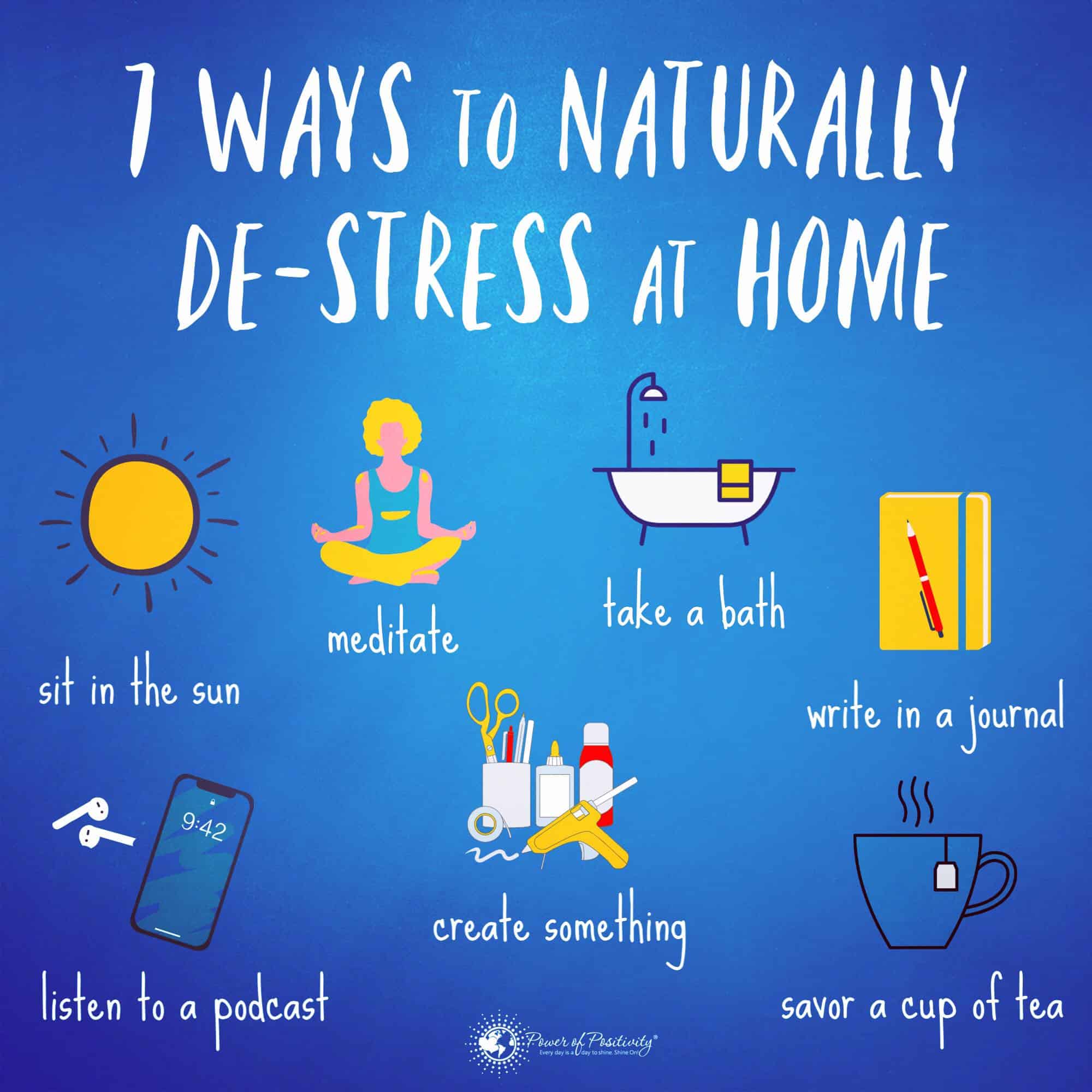Do you have a self-care plan that you use to help recharge your batteries in life? Imagine you sat down for breakfast and wanted a second cup of coffee or tea, but the pot was empty. It’s frustrating to be thirsty and have nothing to drink, but your life can be much like that empty pot that has zero to share with others.
How can you pour from yourself if you have nothing inside your pot to give? Each day you start with a limited number of resources, which equates to how much you can get done during the day. You pour a lot of yourself into your job, then your family takes a good portion, and then there are the 100s of other things that occupy your time.
You get into bed exhausted, stressed out, and begging the Universe for a few more hours to get everything done. Now, what happens if your pot doesn’t refill from one day to another? What if the stressors from the day before took so much out of you that you don’t have enough resources to make it through another day?
According to a Gallup Poll referenced by the American Institute of Stress, 55 percent of Americans admit to being stressed out, and 83 percent of those people find the stress comes from work. Another shocking find is that Generation Z or millennials are way more stressed than the baby boomers. A study found that 52 percent of the people in this age category are stressed to the max instead of only 41 percent of the baby boomer crowd.
Fifteen Helpful Habits for an Effective Self-Care Plan
 Life is stressful, even on a good day. However, it would help if you learned to manage your self-care plan. You must take care of yourself at some point in your day, or you will fizzle out and be no good to anyone. Hospitals and mental wards are full of people who let stress overcome them.
Life is stressful, even on a good day. However, it would help if you learned to manage your self-care plan. You must take care of yourself at some point in your day, or you will fizzle out and be no good to anyone. Hospitals and mental wards are full of people who let stress overcome them.
Your body can only handle so much pressure, and it will shut down on you. Thankfully, you can stop things before it gets to an extreme by practicing a few simple habits to ensure you get much-needed self-care.
1. Wake Up at The Same Time
Sure, it feels so good to sleep in on a Saturday morning, but how many times do you wake up with a headache? Your body gets on a schedule, and any alleviations can make you feel horrible. Try to wake up around the same time each day to feel great and accomplish more.
2. Use A Gratitude Journal
When is the last time you tried to write down why you’re grateful? You have many blessings that some people only dream about having. When life seems cruel and unkind, use your journal as a guide to show you only have a temporary setback.
3. Focus on The Here and Now
Worry is one of the most significant time stealers of all. When you’re focused on things that haven’t happened, then you’re stealing precious time from the here and now. Did you know that Psychology Today states that 91 percent of your worries never come true, so don’t waste your time fretting about them?
4. Use Phone Apps for Fitness Tracking
When you use apps on your phone to track fitness, you instantly become more accountable. Do you have a good exercise routine? Exercising is a valuable tool as it helps to fight depression and anxiety naturally by raising the neurotransmitters in the brain, according to Medical News Today.
5. Hold Yourself Accountable
Scheduling time for yourself is just as important as making it to work on time. Hold yourself accountable for your “me time,” as it will be the thing that keeps you going. You will soon learn that these little escapes of alone time are necessary for survival.
6. Use Your Free Time Wisely
If you have some free time, then don’t give it all away to others. Take some time to do things for yourself. It’s okay for you to go shopping for some new shoes, get a new hairdo, or try that new milkshake they keep advertising at the local ice cream parlor. Turn your phone off and enjoy some silence and a little treat.
7. Schedule Tasks Until They Are Habits
If you cannot fit yourself into your schedule naturally, you need to keep a plan until it becomes a habit. Perhaps it will be a Pilates class every Thursday at 7 pm. It may not feel like it’s important the first few times you do it, but once you see it on the calendar every week and go, it will soon become a habit.
 8. Keep A Food Journal
8. Keep A Food Journal
The connection between your brain and your gut is becoming apparent. If you want to feel good and have more energy, you need to eat the right foods. Empower your journey in life by consuming nutritious foods.
A journal helps keep you accountable for what you put in your mouth. Additionally, if you have weight issues, a food journal can help you stick to a specific number of calories or carbohydrates.
9. Treat Yourself
Whoever came up with the concept that only children get treats was sadly mistaken. It doesn’t matter what age you are or what stage in life; you long to be rewarded for your efforts. While you may not go to the park to swing or play on the jungle gym anymore, you should find other ways to treat yourself to stay on schedule with your self-care plan.
10. Practice Good Sleep Hygiene
While the amount of sleep a person needs varies greatly, you need to practice good sleep hygiene. You need to be around the same time each night and wake up at the same time each day. If you start borrowing sleep hours to get things done, you will have a deficiency that can cause all kinds of issues.
Sleep should be a big part of your self-care plan, and nothing can make you feel more miserable than losing several hours of shut-eye during the week.
11. Use Positive Affirmations
Start your morning on the right foot. When you get out of bed each day, try using positive affirmations to keep you in check. Your self-care should be one of those affirmations. When you tell psyche yourself by reiterating all that you will get done, you will be surprised by how much better you feel.
12. Declutter Your Home and Mind
Decluttering your spaces may seem like a big task, but it will make you feel so much better. When you’re more structured, you will get more done. Thankfully, an organized person will usually have more time to devote to self-care. If everything in your life is a chaotic mess, how will you fit time in for your personal needs?
13. Make a List of Tasks and Activities
How many times have you asked your spouse or children to make a list of all the things they wanted to do? You should also make a list that you can refer to that includes the things that you like. What tasks and activities help you feel more relaxed?
Once you identify the things that help calm and relax you, you should incorporate them into your day.
14. Practice Yoga & Meditation
Both yoga and meditation are ancient art forms that help clear the mind and body from negative energy. It should be a part of your self-care plan because it’s so refreshing. When you need to destress or decompress, then this should be your go-to activity.
15. Create A Zen Space
Do you have space in your home where you can go and chill? No, your home office doesn’t count as such an area. You want a free place from electronics, stress, and where you can curl up with a good book or take a nap. Even a big porch swing is a great place to be alone and unwind.
 Final Thoughts on Your Self-Care Plan
Final Thoughts on Your Self-Care Plan
Why is it that people always put themselves and their needs last? As a mother or father, it’s common to put your children before yourself, but when you put everything in this world before your needs, you’re asking for trouble.
When is the last time you took a personal day and used it for nothing more than to do what makes you happy? Do you have mental health days that you can use to recharge your batteries? The mental health crisis in this country is growing to epic proportions, and part of it is because people don’t have a self-care plan to help them recuperate from stress.
According to the Anxiety and Depression Association of America, over 40 million people suffer from these common disorders. While chemical imbalances may cause some of the issues, many people suffer from circumstantial illnesses that can be changed by simply altering their lifestyle.

















